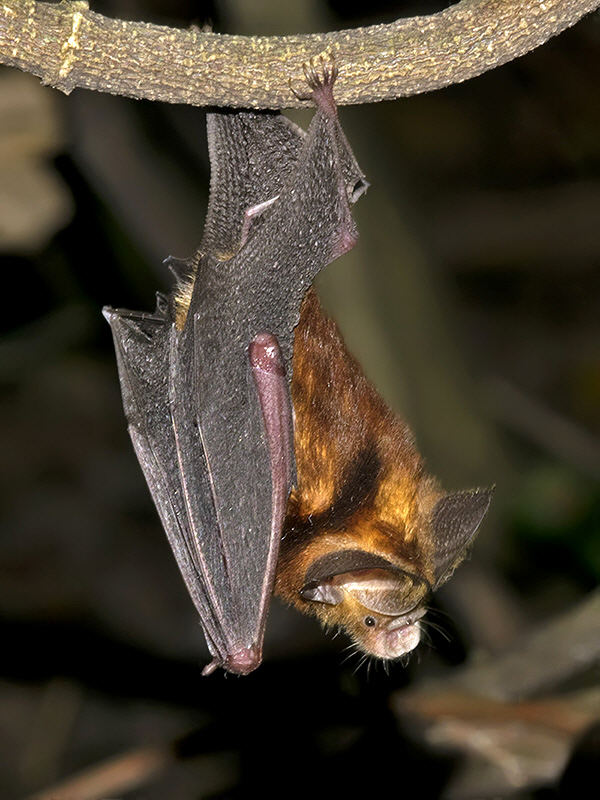
Fig 1
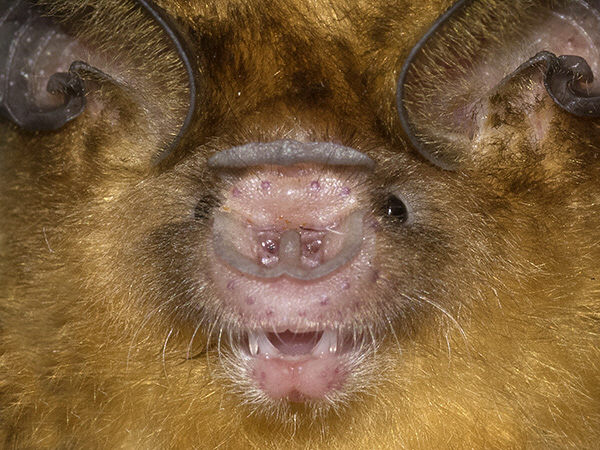
Fig 2
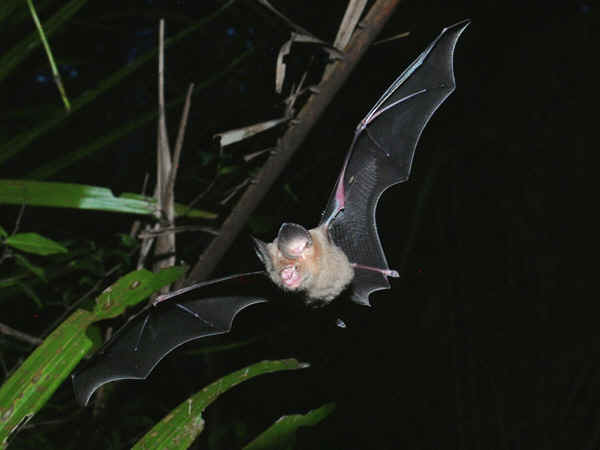
Fig 3
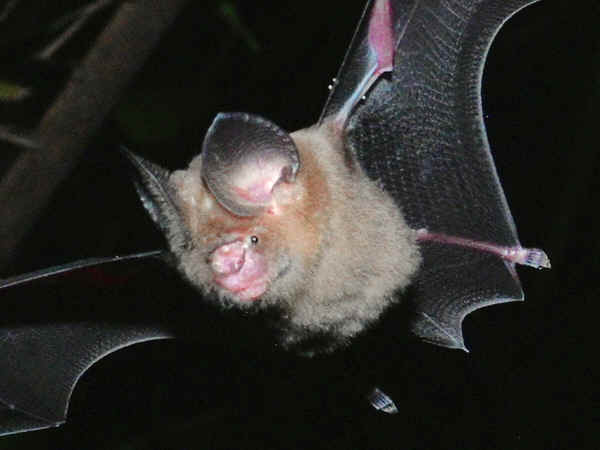
Fig 4
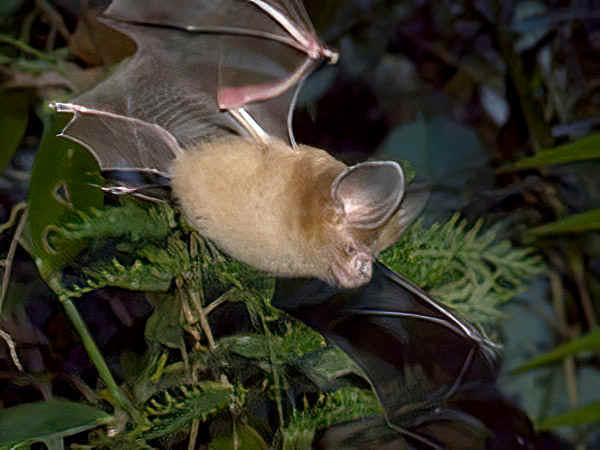
Fig 5
|
Order : CHIROPTERA
Family : Hipposideridae
Species : Hipposideros
cf. cineraceus
Forearm Length : up to 4.0 cm
Weight : up to 6 grams
(Wongwaiyut et al, 2023)
Hipposideros
cf. cineraceus
(Ashy Roundleaf Bat, Least Leaf-nosed Bat) occurs widely in the Southeast Asia
region.
IUCN summarised their habitat use in Thailand as follows: 'In Thailand, it
has been found in (a variety of) forest types, including hill and lowland
evergreen, mixed deciduous, dipterocarp, mangrove and bamboo forests, and is
tolerant of highly disturbed habitats, including plantations, orchards, rice
paddies, corn fields and human habitations'. (Douangboubpha et al,
2019)
The species is known to roost in caves, tree hollows and man-made structures including
culverts.
The typical dorsal fur colour is buffy-brown to greyish brown or dark brown and its underparts
are pale brown to buffy white. The noseleaf is pink, and it lacks
lateral leaflets. The ears are relatively large, rounded and have a pointed
tip.
The call of Hipposideros
cf. cineraceus ranges from 134.8 to 154.1 kHz (Wongwaiyut et al,
2023); this would typically be dependent upon
geographical location.
Earlier, Francis (2019) touched upon the relative distribution and echolocation frequencies of
two forms of this bat; the second, 'widespread form' discussed by Francis was
known to occur in Peninsular Malaysia and Laos, and had an echolocation call
of 'c. 155 kHz'.
The detected search-phase calls of the bat shown here in Figures 3 and 4 had
a constant frequency (CF) component of 156 kHz; tentatively this bat is Hipposideros
cf. cineraceus.
On the island of Pulau Ubin, to the northeast of Singapore, a roost of Hipposideros
cf. cineraceus
was documented by Mr. Noel Thomas in 2016-2017; some bats from this roost appear reddish-brown in colour (see Figures
1 and 2).
It seems likely that similar species currently subsumed under the
Hipposideros
cf. cineraceus
name (which appears to be a species complex) will be described as new,
distinct species. In 2023, Hipposideros kingstonae was described as a
new species, having previously been confused with Hipposideros
cf. cineraceus (Wongwaiyut et al,
2023).
Figs 1 and 2 : Example from Pulau Ubin, Singapore; in this bat the fur
appears reddish-brown in colour.
Figs 3 and 4 : Tentative Hipposideros cf. cineraceus with
light brown fur from degraded lowland forest edge near Ipoh, Perak,
Peninsular Malaysia. The faint, constant frequency (CF) call of this bat was
detected as 156 kHz.
Fig 5 : Another tentative Hipposideros cf. cineraceus from degraded lowland forest edge near Ipoh, Perak,
Peninsular Malaysia.
References :
Douangboubpha , B., Srinivasulu, B. & Srinivasulu, C. 2019. Hipposideros
cineraceus. The IUCN Red List of Threatened Species 2019:
e.T10119A22093106
Francis, C.M. 2019. A Field Guide to the Mammals of South-east Asia. Second
Edition. New Holland. 416 pp.
Wongwaiyut, P., Karapan, S., Saekong, P., Francis, C. M., Guillen-Servent,
A., Senawi, J., ... & Soisook, P. (2023). Solving the taxonomic identity
of Hipposideros cineraceus sensu lato (Chiroptera: Hipposideridae) in
the Thai-Malay Peninsula, with the description of a new species. Zootaxa,
5277(3), 401-442.
|